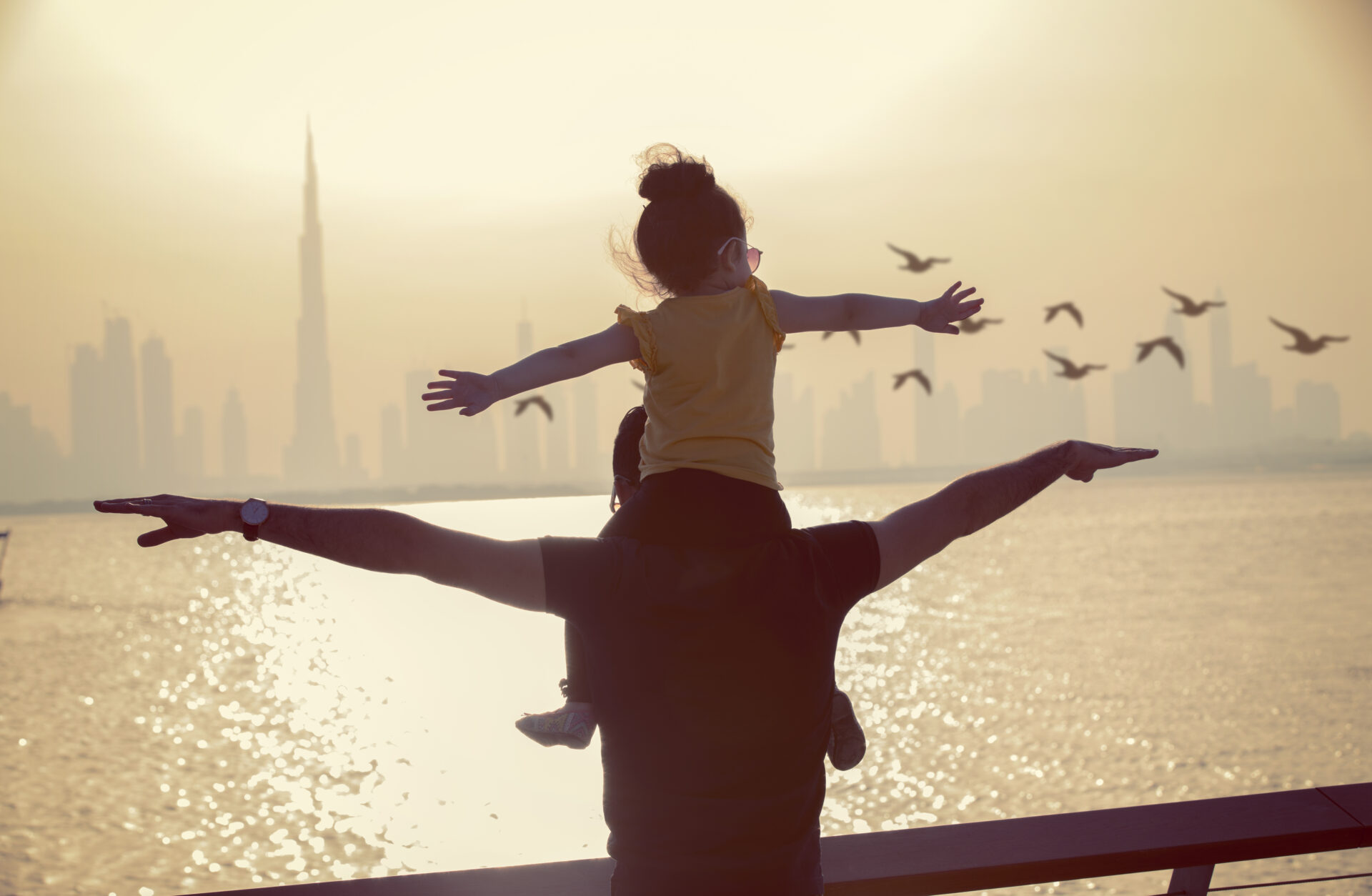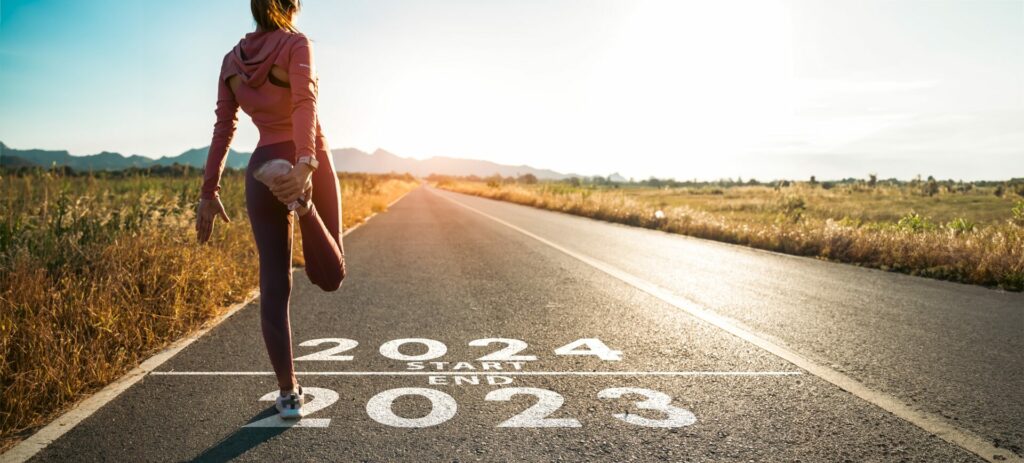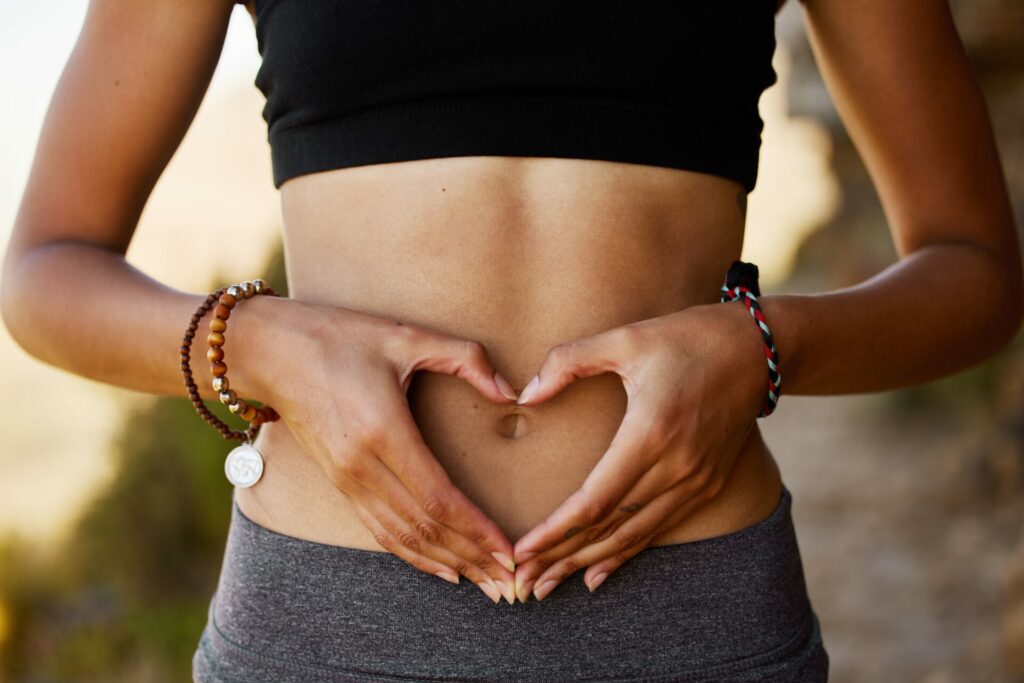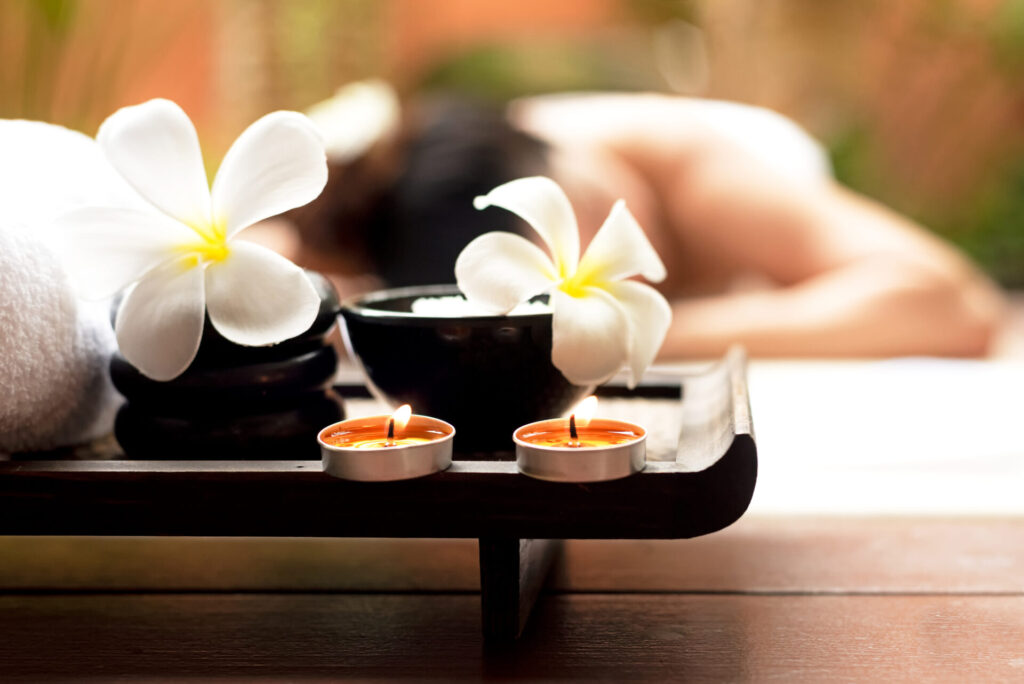Parenting is a messy business – not because of the sticky toddler fingerprints and untidy teen bedrooms but because having children is one of the most planet-polluting things a person can do.
Studies show that having a child is seven times worse for the climate in terms of annual CO2 emissions than the next 10 most-discussed climate-related actions put together.
And, while you might think that parenthood makes people more thoughtful about the future and therefore more eco-aware, research says otherwise. Two-adult households with children emit 25 per cent more carbon dioxide than two-adult households without – partly due to increased transport and food consumption, but also because of tired mums and dads resorting to less planet-friendly convenience options.
The uncomfortable fact is that when you welcome the pitter patter of tiny feet into the world, you’re heralding the arrival of a whopping great carbon footprint too.
So, what can we do to mitigate that? The carbon cost of having children doesn’t have to be inevitable, says Sofi Chabowski, a Dubai-based mother of four (aged nine, eight, six and five) who owns sustainable family-lifestyle store, Eggs N Soldiers.
‘Yes, a baby is another human on the planet but that doesn’t necessarily mean you need a bigger (gas guzzling) car, a bigger home, and loads more stuff,’ she says. ‘You can generally make do with much of the lifestyle arrangements you already have.’
If being a parent is giving you eco guilt, here are some tips on how to minimise it by being a greener family in the UAE…
Cloth Nappies
The clock starts ticking on a child’s carbon footprint from almost the minute he or she is born. Why? Nappies, of course, with the average child going through 5,000 – 8,000 disposable nappies before they are potty trained.
And the dirtiest secret about diapers? They take hundreds of years to decompose – the estimate is 500 years – but they also introduce faeces into groundwater, use nonrecyclable plastics, and contribute to the problem of oil drilling, since plastic is a petroleum-based product. Even the ‘biodegradable’ ones can be questionable if they’re thrown in the bin, says Sofi, ‘since the conditions of landfill do not promote decomposition, due to the amount of methane it would release into the atmosphere.’
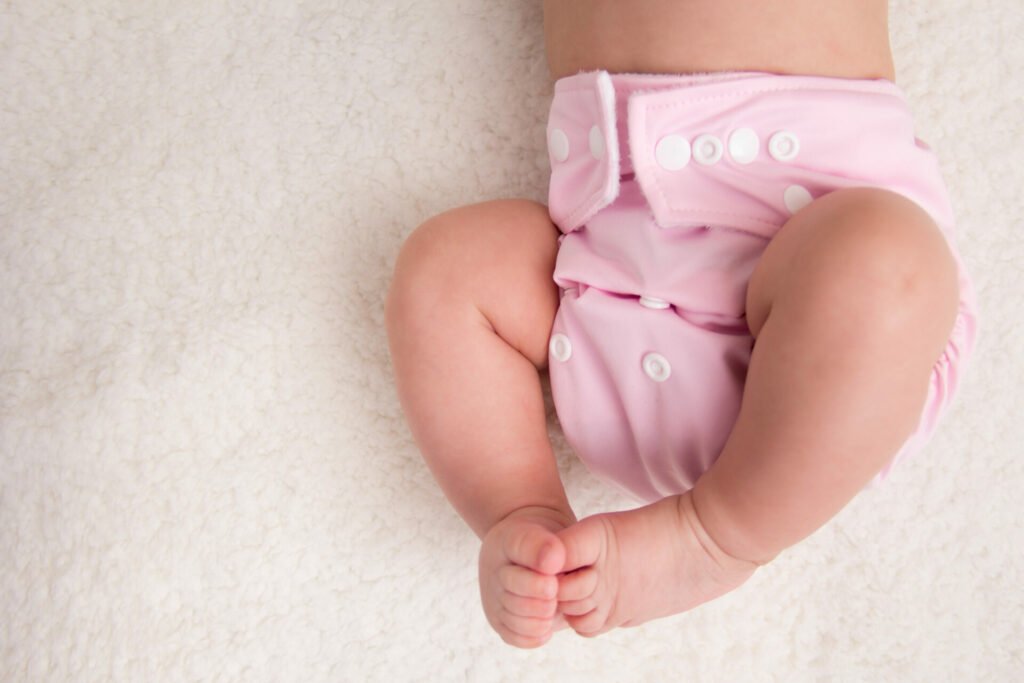
Sofi pioneered the use of cloth nappies in the UAE when she became the first brand to start selling them eight years ago through her store.
‘It’s true they’re a bit more work in terms of having to be washed between uses,’ she says. ‘But this pales in comparison to the benefits: increased comfort for baby; reduced chemicals and synthetics on baby’s skin 24/7; and avoiding the thousands of nappies in landfill each year per child.’
Breastfeed and DIY Baby Food
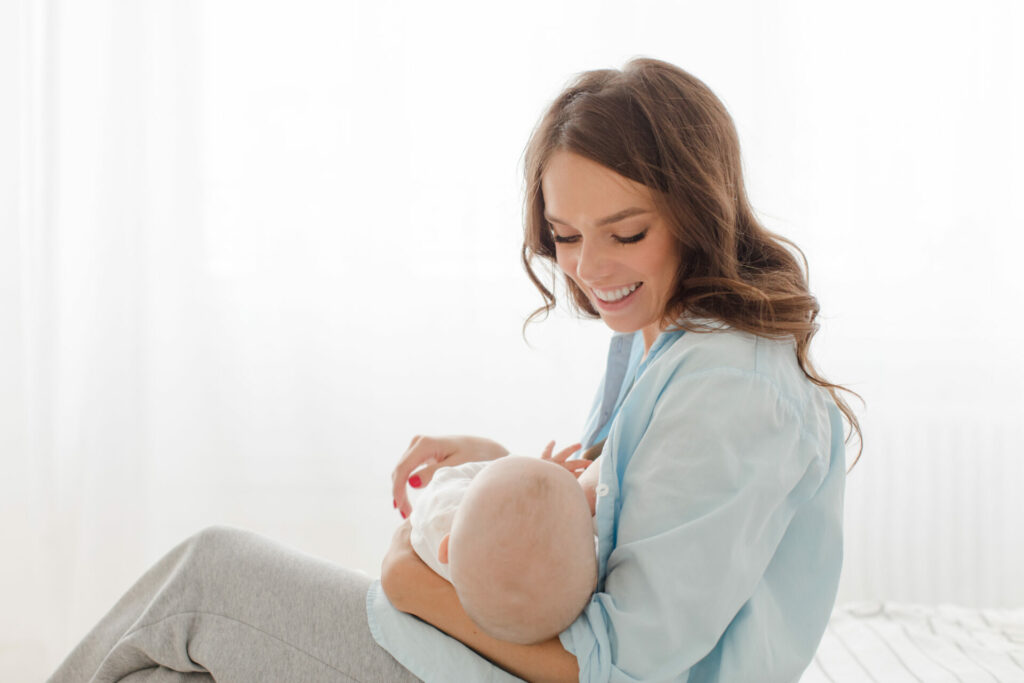
For new parents, helping the environment is one more reason to breastfeed if you’re able to – in addition to the nutritional, health and bonding benefits it has for both baby and mum.
A major ingredient in formula milk is often palm oil, which is well known to be a major driver of deforestation, destroying the habitats of endangered species such as the Orangutan.
Both formula milk and pre-prepared weaning foods also require multiple energy – and water –intensive processes. Opting to make your own baby food with fresh, local ingredients will cut down on the carbon footprint of buying pre-made weaning foods and it doesn’t have to be labour-intensive. Mashing up salt-free versions of your own meals, or offering simple finger food can be just as easy as packaged alternatives.
Eat less meat
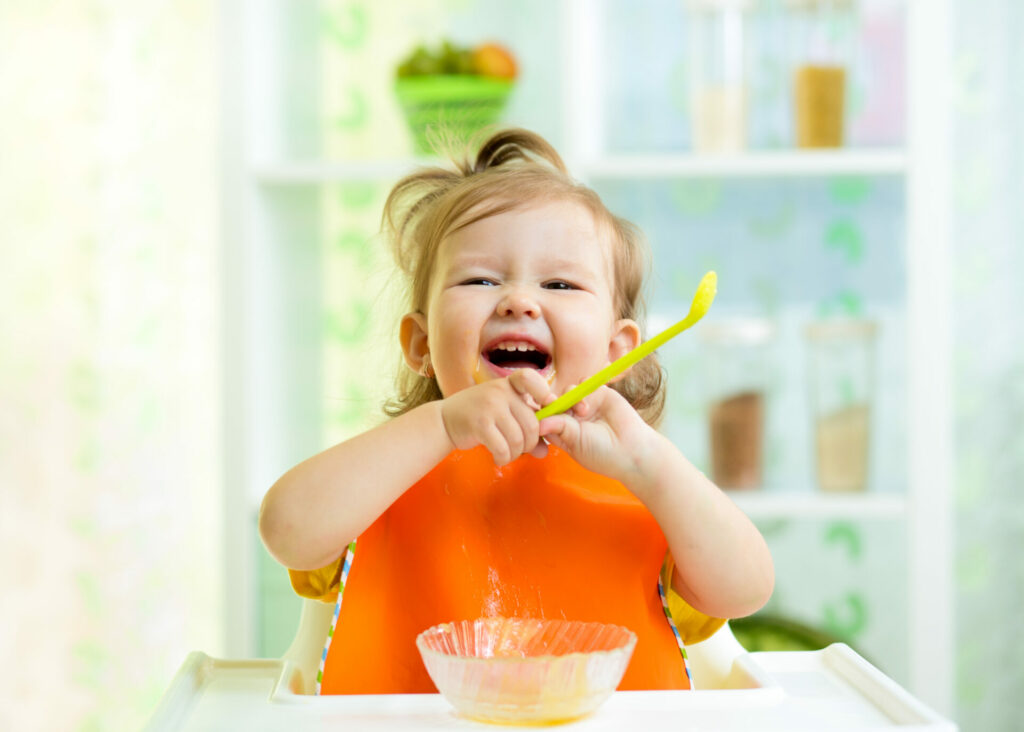
Eschewing meat from your family diet saves around 0.8 tonnes of CO2 per year, which is about four times more impactful than recycling. Although the nutritional consequences of this might worry parents, it’s perfectly possible to raise a child safely on a vegan or plant-based diet, as long as vitamin and mineral levels are monitored.
But even a small tweak to your family diet can have impressive results: just one vegetarian day per week (52 days a year) can save nearly 100kg of CO2 per year.
Don’t get all the gear
Consuming less in general is another very simple way to minimise your impact on the earth, says Sofi Chabowski.
‘You don’t need to buy all the gadgets that apparently make parenthood “easier”,’ she says.
‘Instead, choose good-quality products that have long-term use – such as a natural mattress with a good-quality cot that then converts into a toddler bed. This set-up can last from birth all the way up to when your child turns five years old, which is far more sustainable than buying a bassinet, then a bedside crib, then a cot, and then a toddler bed.
‘My advice is to start with the minimum and add more if you need, rather than having all the kit in the beginning and then realising you don’t use it.’
Buy pre-loved
Children grow out of clothes and toys so quickly that buying everything new is a waste of resources and takes an unnecessary toll on the planet. Instead, try out Baby Bazaar or Thrift for Good as Dubai hot spots for second-hand children’s clothes and gear like strollers or high chairs.
When it comes to toys, a sustainable subscription service such as Kiddos Toy Club sees little ones receiving a ‘new’ (to them), developmentally appropriate box of toys to play with every month, which are then returned in exchange for a fresh batch before they have a chance to get bored.
Meanwhile House of Prose is the place to go to for second-hand books, or do the same online at Bookends.ae.
Almost everything for children can be bought second-hand, agrees Sofi: ‘The only items I would always recommend buying new are a mattress (preferably a natural one) and a car seat, both for safety reasons.’
Gone are the days when every item in the UAE supermarket was flown in from thousands of miles away. The UAE now has a thriving agricultural industry, which you can often buy from directly through farmers’ markets in the cooler months.
Shop locally
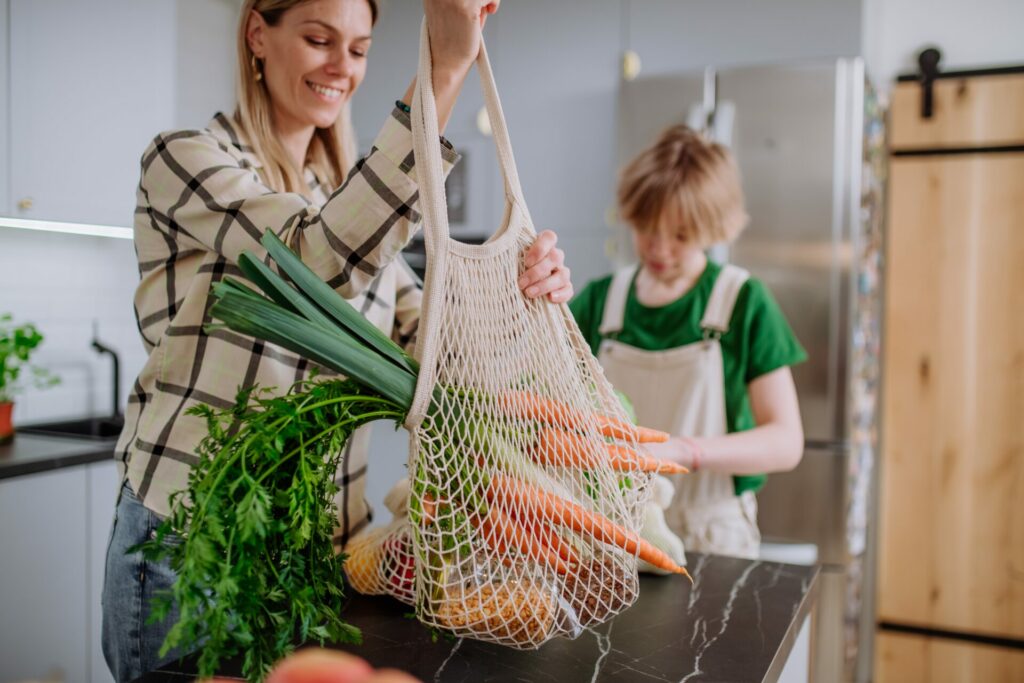
Not only does buying local food make for fresher ingredients, the environmental pay-off is also big. For example, Elite Agro (EAG), a UAE producer and distributor of fresh produce, saved 13,258 tonnes of carbon emissions from tomatoes last year when compared to airfreight imports from Holland and Spain.
Get a water filter
The UAE consumes 4 billion plastic bottles per year, most of which are not recycled. Fitting a water filter so that you can drink direct from the tap is a safe, more economical alternative that is much better for the environment. Check out waterclub.ae, which will fit your taps with a removable water filter from only Dh49 per month.
Zero food waste
Did you realise that the contribution of food wastage emissions to global warming is almost equivalent (87 per cent) to global road transport emissions? Composting not only avoids this, it also actively lowers greenhouse emissions by improving carbon dioxide absorption in the soil. But a lot of people are put off by the mess, and not everyone has a garden where they can use the compost. Check out The Waste Lab – they will provide you will a reusable carton to fill up with food scraps, and will collect it every two weeks to be turned into lovely, sustainable compost.
Go on a ‘flight diet’
Cutting down on air travel is possibly one of the hardest changes for UAE expats, who usually need to travel overseas to visit family in their home countries. But it’s one of the most impactful things you can do: avoiding just one transatlantic flight annually saves eight times more carbon emissions than comprehensive recycling for a whole year.
‘Try to be conscious about how you travel and make the most of the route,’ says Sofi. ‘For example, include road or train travel rather than purely air travel. Visit multiple places in one journey rather multiple separate trips involving air travel.’
Pass down eco-aware values
Teaching your children to appreciate nature and our planet is a crucial legacy. You can do this by taking them to the beach, the park and the mountains, inculcating a respect for and love for the natural world.
Encourage them to advocate for more sustainable practices – whether at their school, or in the businesses you frequent. And lead by example, by making mindful choices, rather than simply consuming because you can.
As Sofi says: ‘Always think: do you really need it? Can you get it or something similar locally? Can you buy pre-loved instead of new? Can you look after it well so that you can pass it on when you have finished with it?’
Which aptly applies to the planet too. With these small, consistent changes, we can take better care of the Earth, so that we can pass it on to our children in the best possible condition.

